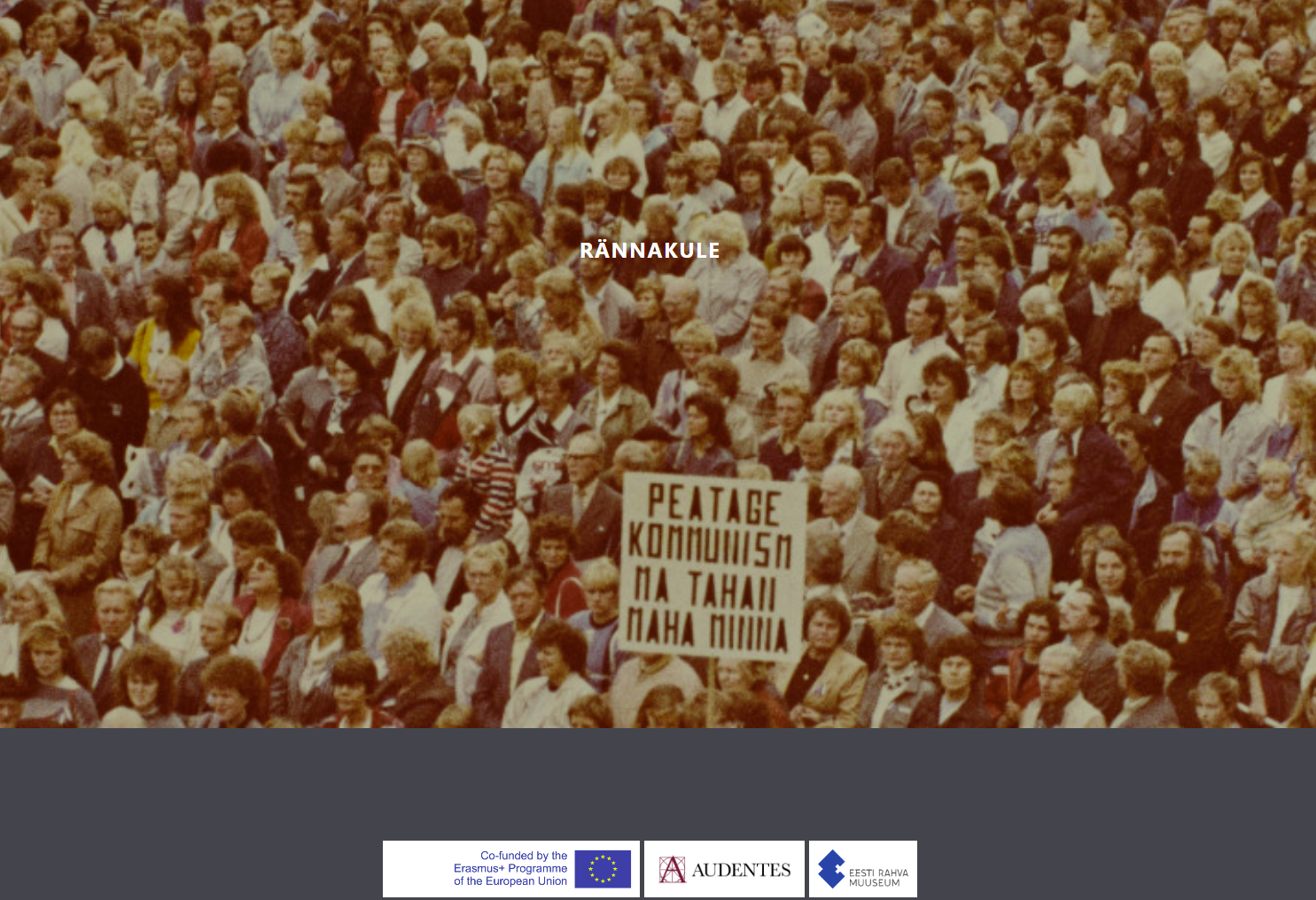
Screenshot of the 'Digital Time Travel 1991' game environment
Digital Time Travel 1991
Monday, 22. jan 2024
DTT was also nominated in the Museum Pedagogy category at the Estonian Museums' Annual Awards of 2023.
In the years 2021-2023, ENM's education center participated in the international Erasmus+ project 'Digital solutions for Applied Heritage - Exploring Transnational Learning Opportunities' (DiSAH), with the the Nordic Centre of Heritage Learning and Creativity as the lead partner.The goal of the project, largely triggered by Covid-19, was to develop digital solutions and tools for co-creation and participation at museums, and to release a book about digital museum pedagogy based on the project's research. Each partner, i.e. from Estonia, Finland and Sweden, solved the task in their own way.
As the member of the internationl organization Bridging Ages, ENM in cooperation with Audentes School seeked for digital solutions for the time travel learning method in a situation where physical time travel is difficult. created the world's first digital time travel (DTT), titled 'Digital Time Travel 1991' ("Digirännak 1991").
'Digital Time Travel 1991' is a game environment. The topic of DTT is the re-independence of the Republic of Estonia, focusing exclusively on the date August 20, 1991, when the Supreme Council of the Republic of Estonia voted on the confirm of its Restoration of Independence. The game is based on six different characters who open the historical event from different point of views.
The principles of 'Digital Time Travel 1991' :
- target group: grade 9-12
- based on 6 characters
- structured in the format of an escape room: the previous task must be solved before the next one can be started
- there are a total of 20 tasks in the game
- common introductory and final task for the whole class
- after that the class is divided into groups
- each group chooses two characters, 3 tasks for one character.
'Digital Time Travel 1991' is available on ENM's home page (please note that the DTT is only in Estonian).
As a result of the Erasmus+ project, an e-book'Digital education in the museum - inclusion and co-creation. Museum employee's manual' (author Gustav Wollentz) was published.
The book is primarily intended for museum workers who are looking for new practical ideas on how to use digital solutions to involve target groups in their activities. The e-book is available here.
The central themes of the work are learning, inclusion and co-creation in the digital and post-digital educational world. Since techniques intended for museums can also work successfully in other situations, everyone else is of course welcome to read this.



